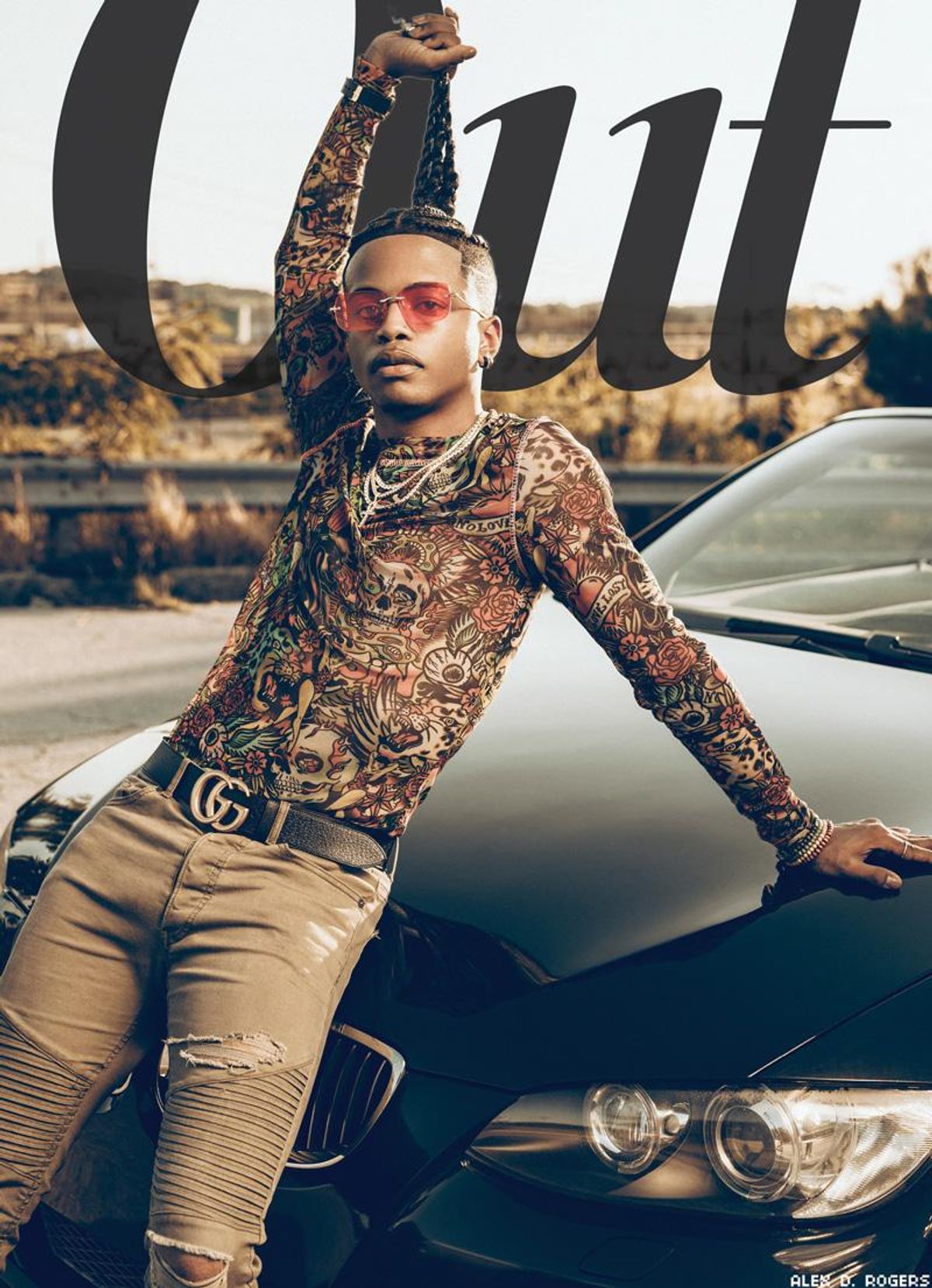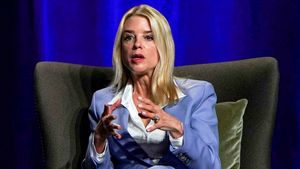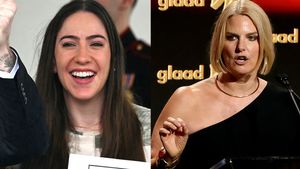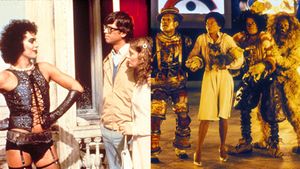Damien Denzel Ross Henderson, better known as the rapper Damez, has mixed emotions. The day his upbeat new single drops, riots have broken out in Minneapolis, protesters whose rage at yet another police killing of a Black man boiled over. In just the last few weeks, at least four unarmed Black people were killed by police or by vigilantes with relationships to police. In a world that makes Black lives seem expendable, the deaths of Dreasjon Reed, Ahmaud Arbery, George Floyd, and Breonna Taylor are heavy on Damez's mind.
"I absolutely feel a connection to Ahmaud, George, Dreasjon, Breonna, and all of the many other Black people who have lost their lives to senseless racism by the hands of people who were sworn in to protect and serve," Damez says. "I'm Black, I'm a man, and I'm in the LGBT community as well. My odds are stacked against me with seemingly no ceiling."
But Damez adds, "Let me be very clear, even if I wasn't LGBT, being Black alone is enough struggle to last all of us centuries and centuries of lifetimes."
An advocate against police brutality and the injustices in the legal system, Damez has often expressed those sentiments in his music. (For starters, listen to the lyrics in his songs, "Supreme," "Part II," "Dopeboy," "Introspection," "Hold On," and "Free"). "I feel as an artist, as Nina Simone once said, 'It's important to reflect the times,' and I will always advocate for the advancement of my people, all of my people," Damez adds, "in not just my music, but in everything I do."

The violent deaths of young Black men is heartbreakingly common in our times, and extremely personal to Damez. He was just 17 when he stood in front of national television cameras and accused more than a dozen Jackson State University football players of being partially responsible for the death of his brother, Ryan. After being beaten by football players, Ryan Henderson left a party then later returned with firepower (his cousin had a gun). Ryan was killed in the ensuing scuffle. Damez called his older brother his best friend, the person who knew him more than anyone. In the eight years since his killing, Damez says, he hasn't found anyone else who knows him as well.
"I know for a fact no one will ever know me as well as my brother Ryan did," Damez admits. "But, I do have people in my life who definitely know me extremely well, so I'm very grateful for that." He's also grateful for the opportunity to be a role model. "I get a lot of younger people in the LGBTQ+ community who reach out to tell me how much I've inspired them to be themselves and live in their truths," he says. "How they didn't have anyone to look up to before me.
It really encourages me to keep going because I see that I'm touching people in ways that mean more to me than any trophy or chart position ever would." As one of the faces of Atlanta's burgeoning creative scene, Damez is a multifaceted player. His music covers rap, hiphop, and R&B, but Damez is also striking for being one of the few trap artists to have choreography along with their music. Does that make him a trap-dance hip-hop musician?

"In a way I guess so," Damez says laughing. "I try not to ever place myself in a box because I feel like it's limiting creatively. I like to just go by 'artist,' because I like to dance, sing, rap, hum, you name it. I also don't only make trap or hip-hop music, so I definitely [try] to showcase the different sides of me." Fans and fellow artists in Atlanta say Damez, whose first full-length LP, The Art of Extravagance, was released in 2017, is on the cusp of something big. They call out his passion and drive, which translates into the work he produces. A self-described "forever student," Damez says he loves learning and growing lyrically, something that shows in his work.
"I think in the rap community, there's so many different lanes and avenues for music," Damez says. "So many different stories and perspectives, and I think there's space for all of us to tell ours." Even with the tragic backstory, Damez's own story is one of striving and survival--but also success and pure unadulterated joy. "Man, it's been a crazy beginning!" he says of his career. Since his first EP dropped in 2014, Damez has had a number of projects, performances, and singles including three LPs, spots on Billboard's Pride playlist (for his self-penned hits "Big Mood" and "Pull Up" from his most recent album D Money), and opening for Dreamgirls star, Jennifer Holiday.
The Art of Extravagance hit platforms back in 2017, followed by two LPs. Last year, Damez performed at Atlanta's Black Gay Pride Festival for an audience of thousands. His most recent album D Money hit the streets in February. It's his first released under his own company, Southland Entertainment, LLC, which is named after the neighborhood Damez grew up in. Like his earlier works, Southland's imprint is pure Atlanta, the city Damez (who was born in Mississippi) has called home for most of his life. "There's so much culture and influence and talent and drip here, that it truly drives you and pushes you artistically," Damez says. But he acknowledges, "On the other hand, there's always homophobia in hip-hop, of course, so some opportunities are inevitably missed out on, but I try to focus on the positives: those opportunities simply weren't for me. I'm very blessed to have had the opportunities I've had thus far in my city."
D Money cohesively channels the trap side of Damez in 14 tracks. It reeks of happiness in a way other trap often doesn't. "I really wanted to focus on giving my listeners a project from me that they could play when they're in the mood to party, turn up, feel confident, or just hear me spit, versus singing or the moody, mellow stuff." Damez is currently working on a companion documentary, too, which will chronicle the creation of the project and his life this past year and a half. The song that hit today, "Higher," is one Damez says he's "really excited about. It's a soulful record that talks about the freedom in being yourself and letting go of what other people think about you." Having it drop in time for Pride, the rapper says, makes it even better. "It's always exciting, but even more when it's a song that means so much to so many and is right on time for Pride month! It feels really good."

The dualities of Damez's life reflect those of so many queer and trans people of color living at intersections of joy and pain, seeing successes tempered by devastating loss. In the song "Supreme, Part II," produced by LilJuMadeDaBeat on The Art of Extravagance, Damez talks about rolling in cash, drowning in grief, working out, regretting his ex. As in the original "Supreme," Damez name checks his brother and references haters but brings it back, showing how police brutality and Black oppression in America leads to both inequities in the justice system as well as a culture that tries to position Black queer men against each other instead of, say, into a familial embrace.
"Man look at all these cops that's getting off / All these Black boys they killing off / Innocent blood they smearing off /Police even bringing war gear and all / Look at all my people that's hating on me / Praying on my failure just waiting on me / But they'll never see me break (nope)" "We're tired," Damez says, channeling the Black community. "We're tired of dying, we're tired of seeing traumatizing videos of murder and having our days, dreams, and hopes ruined and broken. We're tired of watching the justice system flood with injustice. We're tired of having to explain the value of our pulses to other human beings who bleed and breathe just like we do." Still, he forges on and finds joy in the process of creation. He tells fans and other LGBTQ+ people to "continue to love on and check on each other during this unprecedented time. Be smart, stay safe, and keep swimming!" he says, referencing Dory's refrain from the animated classic Finding Nemo. As Minneapolis continues to burn, Damez says, "We won't stop fighting and we won't be censored." The message he most wants to convey? "I want Black people to know you are valued, your life matters, and you can be whatever you want to be in this world."

Photography by Alex D. Rogers; photographer's assistant, Keilan Scott; wardrobe, Beija Velez; hair and grooming by Jazzmyn Mitchell and Jeremy Ford.
RELATED | Young M.A Is the First LGBTQ+ Rapper to Cover Out Magazine























































































